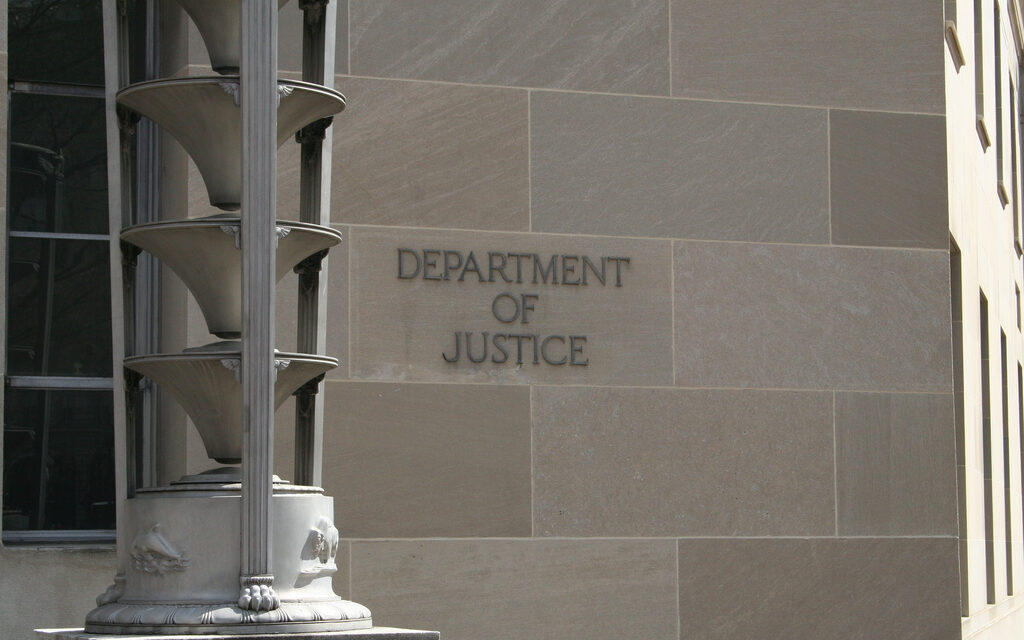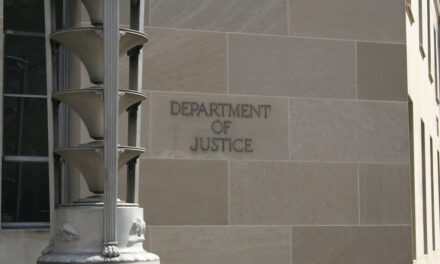Conservatives who thought the president had leaped over the edge with his post-election bipartisan spew think they can relax. Controversial judicial nominations which had been nixed before have been resubmitted. Bush biz as usual.
Why controversial?
(1) They can’t be trusted to be fair;
(2) They have no judicial experience; and/or
(3) The Senate is being rushed to approval without time for a proper review.
Sent to the Senate:
- Terrence W. Boyle of NC, U.S. District Judge nominated for the Fourth Circuit.
Sen. Leahy stated in March 2005 about Boyle’s nominationJudge Boyle has the distinction of being so controversial that his was the only circuit court nomination of President Bush on which the former Republican leadership balked at a hearing.
[As Sen. Edwards] wrote to Senator Hatch in 2003:
… Judge Boyle’s decisions have been reversed or vacated more than one hundred times. … Judge Boyle’s record on civil rights is particularly troubling. In numerous cases he has inaccurately interpreted the law in a way that undercuts basic civil rights protections.
- William G. Haynes II, nominated to be circuit judge in the Fourth Circuit.
Haynes’ previous nominations were strongly opposed on account of his role, as DOD general counsel, in developing policies of detainee torture and cruelty. The July 2006 statement of Sen. Leahy about Haynes included letters of opposition from former military leaders. Human Rights First was devoted to opposing Haynes, as well. - Michael B. Wallace, nominated to be circuit judge in the Fifth Circuit.
Wallace is in private practice in MS. As Chair of the board of Legal Services Corporation (appointed by Reagan when he couldn’t abolish the LSC altogether) Wallace’s tenure is marked by outright hostility to the LSC and more, according to the opposition of civilrights.org.Republican Senator Warren Rudman [accused] Mr. Wallace and the rest of the Board of acting with “absolutely bad faith” explaining, “There is absolutely no trust in the present Board. They have adopted regulations that hinder legal services, they have held secret meetings, and they have done audits [of LSC grant recipients] that were actually harassment.”
The ABA’s federal judiciary committee unanimously rated him unqualified.
Lawyers and judges stated that Mr. Wallace did not understand or care about issues central to the lives of the poor, minorities, the marginalized, the have-nots, and those who do not share his view of the world.
- William G. Myers of ID, to be circuit judge in the Ninth Circuit.
When Sen. Feinstein opposed his 2004 nomination, she wroteThis nominee has little litigation experience in either state or Federal court. By his own account, he has taken only a dozen cases to verdict – and six of those occurred before 1985 when he was a newly minted lawyer. He has never served as a counsel in criminal litigation. Even as Solicitor of the Department of Interior, Myers took no hand in writing legal briefs.
Mr. Myers has spent a large part of his legal career as a lobbyist for cattle and grazing interests.
After his nomination was blocked in 2004, Myers was renominated in 2005. Nothing had changed to make him acceptable. Sen. Durbin wroteMr. Myers’ nomination has been opposed by the National Congress of American Indians, the first time this organization of 500 tribes has ever opposed a judicial nominee.
In addition, he has been opposed by virtually every major environmental group, including the National Wildlife Federation, which has never opposed a judicial nominee in its history.
- Peter D. Keisler, of Maryland, to be circuit judge for the District of Columbia Circuit.
The National Employment Lawyers Association opposed Keisler’s nomination based on his lack of judicial experience, the lack of any scholarly writing [available] to illuminate his philosophy, and his strong connections to “radical conservative activism.”
The Coalition for a Fair and Independent Judiciary, representing some twenty-four public interest and civil rights organizations, wrote its concern at the unusual rush treatment the nomination was receiving — especially since the vacancy was not one of the “judicial emergencies” cited by the U.S. Judicial Conference. The ABA had not yet provided a peer-review rating. His record has not yet been collected and reviewed. - James E. Rogan, nominated to be district judge in CA.
Rogan was the House manager at Clinton’s impeachment trial. Appointed in 2001 to the Patent and Trademark Office, Rogan subsequently practiced intellectual property and public policy law as counsel in Preston, Gates, Ellis (Abramoff’s firm). He recently joined the board of the Nixon Library. Only last month, Gov. Arnold S. appointed him to the superior court bench in Orange County CA. Bush selected him, then, even without a judicial record.
Strange timing…
- Benjamin H. Settle, nominated to the bench in WA.
In private practice since 1977 Settle represents public utility districts, a hospital, a school district, and private businesses. He has no judicial experience from which to make any conclusions about his philosophy, fairness or judicial temperament. - Norman Randy Smith, of ID, nominated to be circuit judge in the Ninth Circuit.
Since 1995, Smith has been an Idaho state court judge. His previous nomination failed, along those of Boyle, Haynes, Myers, and Wallace. Civilrights.org reports that his public record is not readily accessible, as Idaho trial judges do not publish their decisions. Before becoming a judge, Smith represented some of Idaho’s biggest corporations.
As Sen. Leahy explained, Bush has continually undermined the judicial nominations process.
The President’s re-nomination of divisive nominees is a repeat of last Congress and last year, when the Administration and the rubberstamp Republican Senate created a massive confrontation over controversial nominees.
An enormous pool of superior candidates exists. The choice of these nominees for lifetime appointments cannot be justified. Bush’s disdain for the importance of the Bench, his attempt to foist such people on the public with the powers of a Federal judge, exceeds recklessness. It turns the stomach.
Is it 2008 yet?






